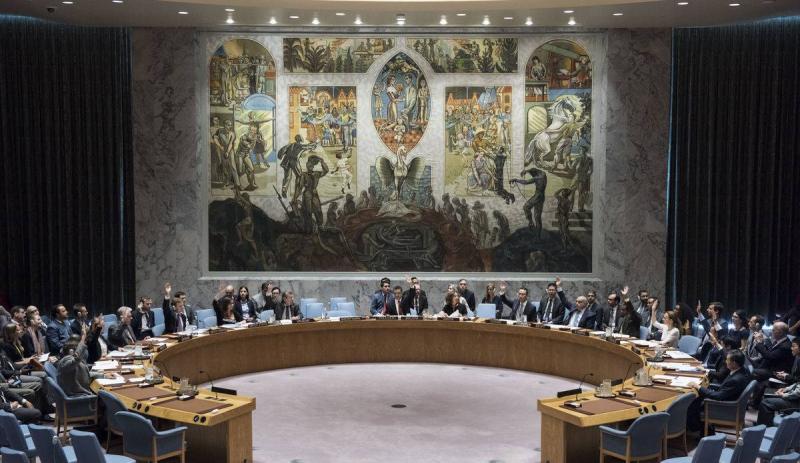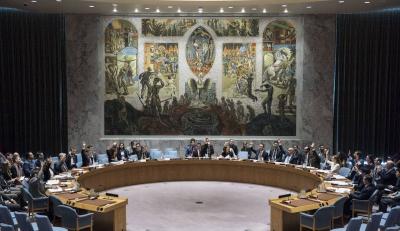Many members of the United Nations Security Council expressed concern yesterday, Wednesday, about the risks of the conflict in the Middle East expanding after the assassination of Hamas's political bureau chief, Ismail Haniyeh, in Tehran by a missile strike attributed by the Islamic Republic to Israel.
Shortly after Haniyeh's killing, the Security Council convened for an emergency session at Iran's request, supported by Russia, China, and Algeria. Iranian Ambassador Amir Saeed Iravani stated that the Security Council should "take immediate steps to hold Israel accountable for this act of aggression, including considering sanctions and other necessary measures to prevent further violations and to show that the international community will not tolerate Israeli malevolent activities."
Several council members, including China, Russia, and Algeria, expressed their strong condemnation of Haniyeh's assassination. The Algerian ambassador asserted that "Israel has followed a policy of bloodshed and scorched earth that leaves destruction and an endless wave of violence sweeping through Gaza, the West Bank, Yemen, Lebanon, and now the Islamic Republic of Iran." He added, "Where will this madness stop?" accusing the Israeli state of "sabotaging" peace efforts in the Middle East.
However, the majority of the Security Council members simply voiced their concerns about the escalation of the conflict in the region. Japanese Deputy Ambassador Shino Mitsuko considered the area "on the brink of a full-scale war," while Slovenia warned that the region is "in the eye of the storm." French Deputy Ambassador Nathalie Broadhurst called for "maximum responsibility and the utmost restraint to avoid the outbreak of regional fire."
During the Security Council session, U.S. Deputy Ambassador to the UN Robert Wood stated that "it is best not to speculate on the impact of recent events on peace and security in the Middle East; a broader war is neither imminent nor inevitable."
In a message sent by Iranian Ambassador to the UN, Irfani, to the council before the meeting, Tehran condemned "in the strongest terms" what it described as Israel's "aggression" represented by Haniyeh's assassination. Iran urged the council to "unequivocally and firmly condemn the aggressive actions and terrorist attacks by the Israeli regime against Iran's sovereignty and territorial integrity, as well as the recent aggressive actions against the sovereignty of Lebanon and Syria and their territorial integrity."
Iran also demanded "immediate steps to ensure accountability for these violations of international law, including the possibility of imposing sanctions and other measures to prevent further attacks."
In related remarks, UN Secretary-General Antonio Guterres considered on Wednesday that the strikes in Beirut (where a senior Hezbollah leader was killed) and Tehran "constitute a serious escalation," according to his spokesperson. Spokesperson Stephane Dujarric told reporters, "The Secretary-General considers that the attacks we have seen in southern Beirut and Tehran constitute a serious escalation at a time when all efforts should lead to a ceasefire in Gaza and the release of Israeli captives, with a significant increase in humanitarian assistance for Palestinians in Gaza and the restoration of calm in Lebanon and along the blue line between Lebanon and Israel."




